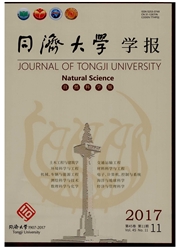

 中文摘要:
中文摘要:
选择丁醇、庚醇、生物柴油和聚山梨糖醇单油酸酯(Span80)作为助溶剂,对比研究其助溶效果.按照不同乙醇体积分数(10%,20%和30%)和温度范围(5~60℃),进行混合燃料的密度、表面张力和黏度等物性参数测量,研究其随乙醇体积分数和温度变化的规律.模拟研究混合燃料对柴油机性能的影响,结果表明:随乙醇体积分数的增加,燃油雾化效果得到改善,壁面油膜逐渐减少,氮氧化物(NOx)和碳烟(soot)排放逐渐减少;发动机动力性逐渐下降,但是当量比油耗和燃烧噪声逐渐下降.乙醇体积分数为10%时柴油机的综合性能最佳.
 英文摘要:
英文摘要:
First, butanol, heptanol, biodiesel and sorbitan monooleate were chosen as the solubilizers. The solubilization capacity of these solubilizers were researched. Then the experiments on the ethanol-diesel blend fuels in different ethanol volume percentages (10%, 20% and 30%) at different temperatures (from 5 ℃ to 60 ℃ ) were conducted. The experiential formulas about density, surface tension and viscosity varied with ethanol volume percentage and temperature were generalized. Finally, the simulation research for the effect of ethanol volume percentages on the diesel engine performance was conducted. With the increasing of ethanol volume percentage, the fuel atomizing process improved, wallfilm mass decreased, NOx and soot emissions decreased, engine power performance penalized, while equivalent indicated specific fuel consumption and combustion noise reduced. The comprehensive performance of the diesel engine is the best when ethanol volume percentage is 10%.
 同期刊论文项目
同期刊论文项目
 同项目期刊论文
同项目期刊论文
 期刊信息
期刊信息
